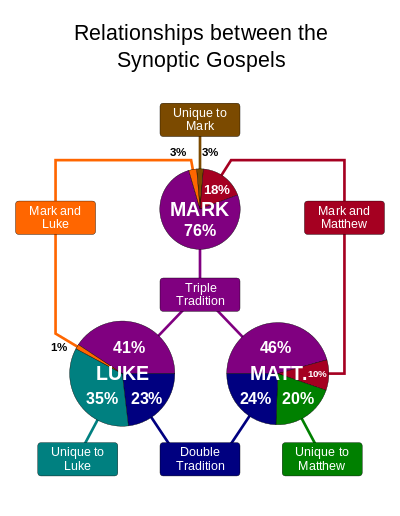Thanks to modern technology, this sort of thing is easily checkable, and you are completely wrong. The Codex Sinaticus, online at codexsinaiticus.org, says exactly what modern translations of the New Testament do:
John 1: "
In the beginning was the Word, and the Word was with God, and the Word was God. He was in the beginning with God. All things came into being through him, and without him came into being not one thing that is in being... And the Word became flesh, and tabernacled among us, and we beheld his glory, the glory as of the Only Begotten of the Father, full of grace and truth." -- see
http://codexsinaiticus.org/en/manuscript.aspx?book=36
Luke 1: "
And in the sixth month the angel Gabriel was sent from God to a city of Galilee, named Nazareth, to a virgin betrothed to a man, whose name was Joseph, of the house of David; and the name of the virgin was Mary... And behold, thou shalt conceive in the womb and bear a son, and thou shalt call his name Jesus. He shall be great, and Son of the Highest shall he be called; and the Lord God shall give him the throne of David his father, and he shall reign over the house of Jacob forever, and of his kingdom there shall be no end. But Mary said to the angel: How shall this be, seeing I know not a man?" -- see
http://codexsinaiticus.org/en/manuscript.aspx?book=35&chapter=1&verse=26
For the star of Bethlehem, see
http://codexsinaiticus.org/en/manuscript.aspx?book=33&chapter=2
Joseph of Arimathea:
http://codexsinaiticus.org/en/manuscript.aspx?book=34&chapter=15&verse=43
Resurrection:
http://codexsinaiticus.org/en/manuscript.aspx?book=33&chapter=28
My apologies, it was late when I wrote that post and I was tired and got sloppy.... Bed was calling

You are correct, that part of the post as written is wrong. I meant to specify the earliest writings contained in these bibles, for example the Gospel of Mark in Sinaiaticus. This was the first gospel written, and the one all of the others were based upon (Matthew and Luke in particular).
For example, the resurrection story is not present, it ends at Mark 16 verse 8, as does all other early bibles that I'm aware of. The resurrection story was added to the gospel later on.
The other missing pieces are present in some bibles, and not present in others. Which basically points to the fact that the gospels had undergone numerous edits, which is the commonly accepted view of biblical scholars. Things by this point hadn't quite settled into a fully agreed upon storyline, but it was getting close.
As for something that might give you a bit of a laugh, Arimathea is actually a joke name. The "Ari" part describes "best" or "good", we see this in other common words like Aristocracy. The middle section "math" from Mathetes is the Greek word for disciple, and "ea" describes a land or place, for example Judea is the land of the Jews. So, the literal translation of Arimathea is "Best Disciple Town". That's a rather convenient birthplace for a supposedly non-fictional character

In reality there was no place we know of that was called Arimathea, it appears to be a joke name written by the gospel authors. The joke only works in Greek though.
Correct this as well to the Gospel of Mark.
The Gnostics were not Christians. They were a different, hybrid, religion. Their so-called "gospels" were written later than the Christian gospels.
That's not really true, the Gnostics when they were still a force referred to themselves as Christians, and regarded the proto-orthodox Christians as heretics, while the proto-orthodox also called them heretical. However, that is about as meaningful as modern day Baptists calling Lutherans heretical and vice versa. No question the Gnostic and Proto-Orthodox takes on Christianity were far more different than Baptists and Lutherans, but writing one group off as heretical is simply an accident of history.
If the Gnostics had won the struggle for power and things had otherwise worked out the same, you'd be on this forum calling gnostic Christianity the real Christianity, and the proto-orthodox Christians were just some heretical splinter group.
The important point is that is not how they were regarded in their day. When Gnostic Chrsitianity was still around, it was regarded as a collection of Christian sects, just like the dozens of other groups, like the Ebionites, Marcionites, and others that had a wide range of views, some of which were nothing like modern christiainty.

